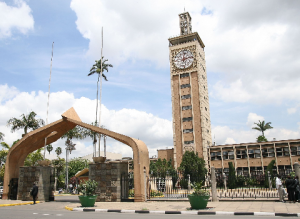Cut all ties with Somalia, says House committee

The Kenyan government may be forced to sever ties with Somalia if recommendations by the National Assembly’s Defence and Foreign Relations committee are adopted by the House.
The committee, chaired by Tetu MP Ndung’u Gethenji, has claimed that the decision by the Somali government to take Kenya to the International Court of Justice over a maritime boundary dispute was hostile and therefore undiplomatic.
The October 28 intervention by Somalia to have the ICJ resolve the longstanding maritime dispute in the Indian Ocean caught the country unawares, with Attorney General Githu Muigai hastily filing a response to the court.
Though Kenya believes that the boundary should run East from the point where it connects with the Indian Ocean, Somalia wants it to extend South in a straight line from the land to the Ocean.
The Report on Somalia and International Boundaries, expected to be tabled in the House today, was adopted towards the end of last month and has also recommended repatriation of all Somali refugees and a complete shutdown of the Dadaab refugee camp, the world’s largest.
It further wants the Kenya Defence Forces deployed in Somalia from October 2011 to crack down on al Shabaab insurgents withdrawn immediately as a measure of protest.
“As a committee, we feel that Kenya has done a lot with Somalia, as a friendly nation, but what we are getting is not commensurate with the help we have extended to them,” a member of the committee confided to the Star.
The report says that were Somalia to have its way, Kenya would lose over 120,000 square kilometers of territorial waters, leaving only a small triangle that would be inaccessible from the high seas, effectively rendering the country landlocked.
It is unclear why the Somali government went to the ICJ, considering the humanitarian, financial and diplomatic assistance it has received from Kenya.
Though the committee has not endorsed the option of war against Somalia over the maritime boundary dispute, it has urged the government not to let the territory go, an element that could precipitate frosty relations between the two neighbouring East African nations.
Also in the mix is the Ministry of Foreign Affairs, led by Cabinet Secretary Amina Mohammed.
The report has accused the ministry’s leadership of being asleep on the job and failing to ensure that the dispute is handled without the ICJ’s intervention.
According to one of the committee’s members, the ministry failed to ensure that the memorandum of understanding between the Kenyan and Somali governments is deposited with the United Nations.
The deposition of the MoU, which includes signed agreements on the maritime boundaries between the two nations, would have averted ICJ intervention.
However, the hesitation could paint Kenya as an aggressive neighbour in the international community, a classification that may have far-reaching ramifications on the country’s image as a peacemaker and mediator on the regional and global scene.
This means that Kenya’s soldiers may be barred from consideration by the UN and continental bodies in future peacekeeping missions around the world.
“The CS must explain to the country why the MoU was never deposited in good time, otherwise we will treat this as an act of insubordination that may include axing them from their jobs because they are proving a great liability to the country that is a member of the community of nations,” our source said.
However, the long-drawn-out inability by the Somali government to protect its own people owing to the years of civil war gives Kenya the option of a visible military power exerting its control over the territory.
Source: The Star
